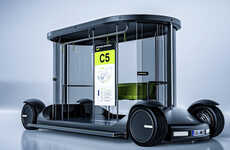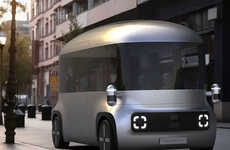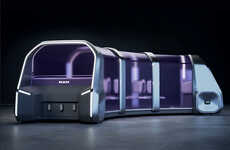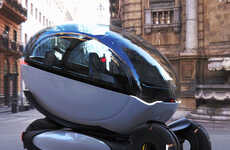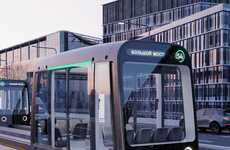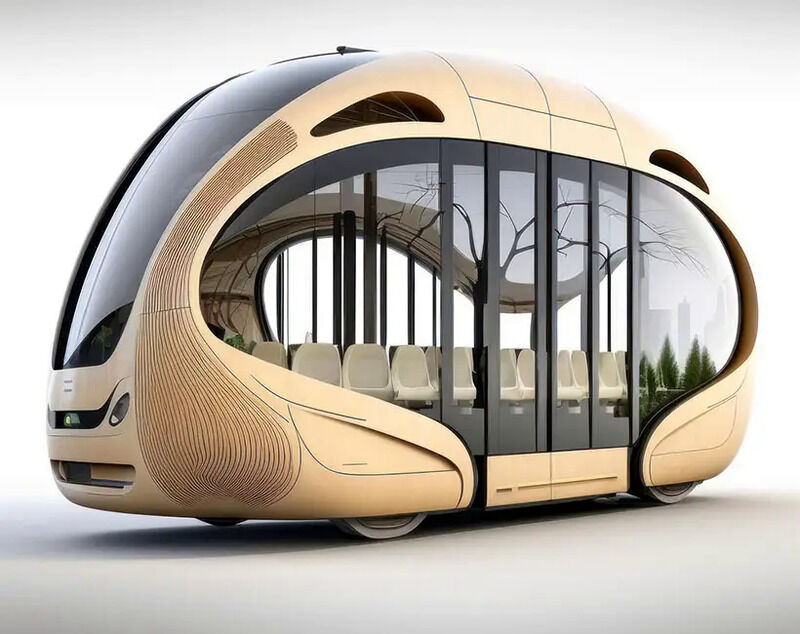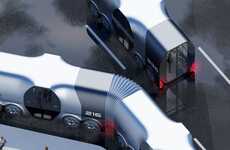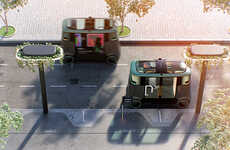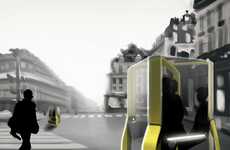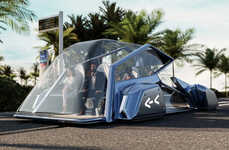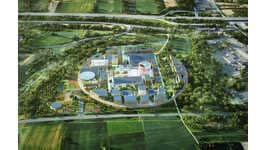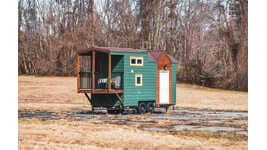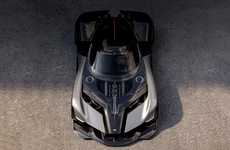
The Conceptual 'Timber Shuttle' is Eco-Focused
Michael Hemsworth — April 14, 2023 — Eco
References: vincentllebaut.org & tuvie
The conceptual 'Timber Shuttle' has been designed by Vincent Callebaut Architectures as a transportation solution for the near-future urban environments to help citizens transition from private cars to public transit.
The shuttle puts a focus on a connected functionality to seamlessly glide passengers around town on an autonomous basis, while also offering well-appointed accommodations on the interior. The shuttles are crafted using bio-based materials including CLT and feature an electric powertrain that uses high-capacity batteries for power. The shuttles can be recharged via induction systems in the roadways, which could also be used for recharging electric vehicles.
The conceptual 'Timber Shuttle' prioritizes a comfortable commuter experience to help passengers feel more confident about ditching private vehicles in favor of a decidedly more sustainable, relaxing alternative.
The shuttle puts a focus on a connected functionality to seamlessly glide passengers around town on an autonomous basis, while also offering well-appointed accommodations on the interior. The shuttles are crafted using bio-based materials including CLT and feature an electric powertrain that uses high-capacity batteries for power. The shuttles can be recharged via induction systems in the roadways, which could also be used for recharging electric vehicles.
The conceptual 'Timber Shuttle' prioritizes a comfortable commuter experience to help passengers feel more confident about ditching private vehicles in favor of a decidedly more sustainable, relaxing alternative.
Trend Themes
1. Bio-based Transportation - The Timber Shuttle features bio-based materials that could pave the way for more sustainable transit solutions.
2. Autonomous Commuting - The Timber Shuttle's focus on autonomous, connected functionality could disrupt traditional modes of transportation like private vehicles and public transit.
3. Inductive Charging - The Timber Shuttle's inductive charging system could pave the way for more efficient and convenient charging solutions in the auto industry.
Industry Implications
1. Transportation - The Timber Shuttle's sustainable and autonomous design could disrupt the traditional transportation industry by offering a more eco-friendly and convenient alternative.
2. Construction - The Timber Shuttle's bio-based materials could disrupt the construction industry by offering more sustainable and innovative building solutions.
3. Energy - The Timber Shuttle's inductive charging system could disrupt the energy industry by offering more efficient and convenient charging solutions for electric vehicles.
6.9
Score
Popularity
Activity
Freshness


